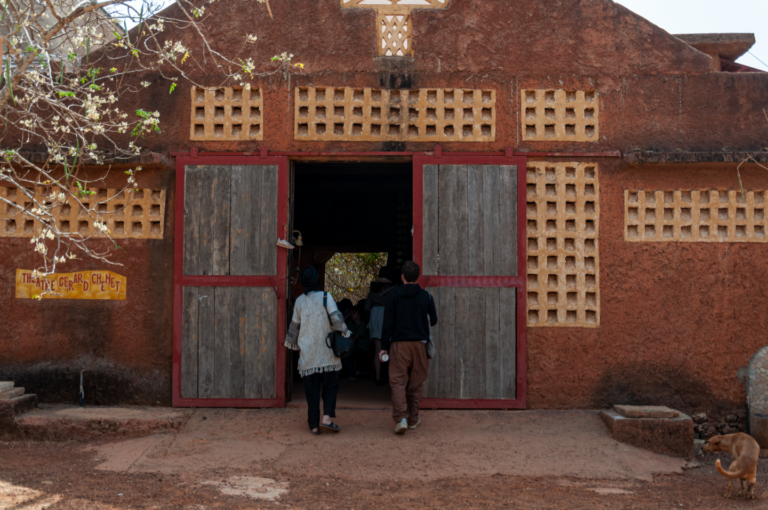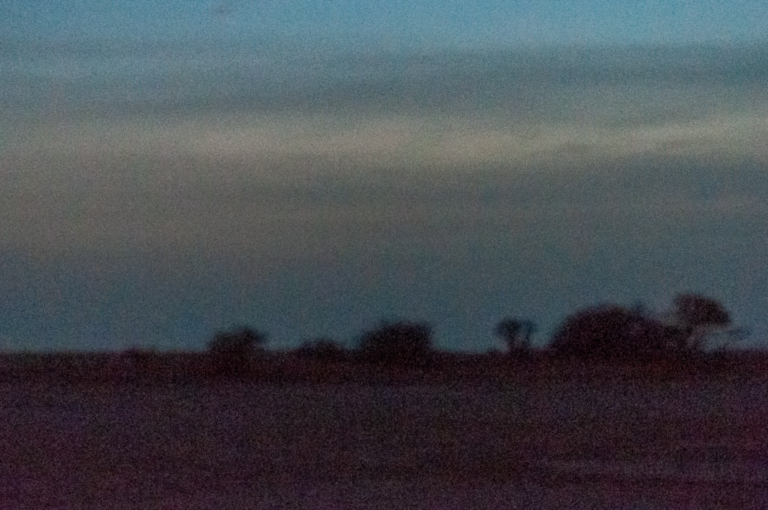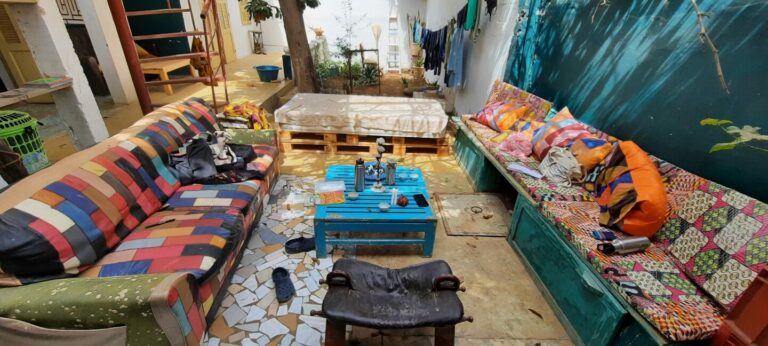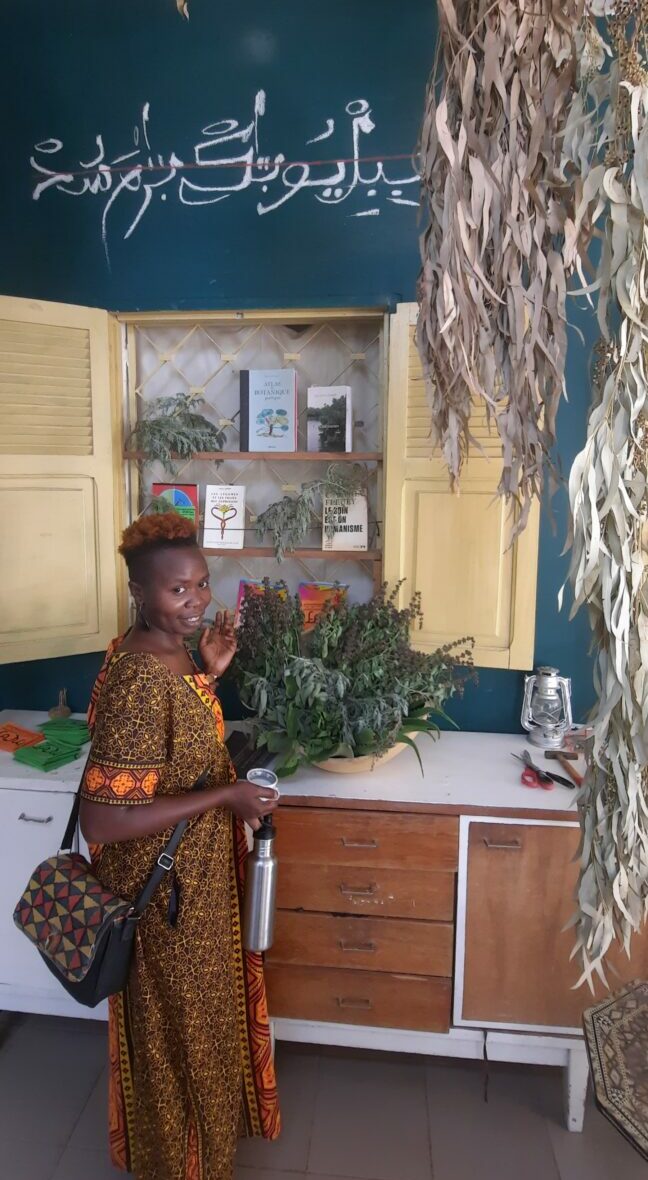Interview transcribed and compiled by Wangüi wa Kamonji.
In February 2022, 3 ecoversities initiators from Cairo, Egypt, Dakar, Senegal and Nairobi, Kenya, met in a gathering exploring Faju (healing) in Dakar. In the middle of workshops, talks and activations, we sat down to connect about our journeys and unearth what we had learnt so far. Each of our un/learning experiments is at a different stage of emergence. Our conversation honours this and we feel will also be resonant with projects at various stages on the continent.

In asking how did you begin as you meant to continue, I’m curious about beginning well. How does one begin creating a homely learning space or learning encounters and infuse one’s desires, dreams, hopes, visions and values in the beginning in a way that they actually carry you in the doing of it? So just really paying attention to that beginning point. How do you begin well while also recognizing that you can have multiple moments of beginning again, even when you are in process. How did you cast vision, make prayer, and pour libation for the journey to come?
Karim: After my Masters in France, I called my parents and said, I think I landed a job! They said that’s fantastic, what will you be doing? I’m going to teach at this boarding school in Pakistan. And my mom, who is one of my guides throughout my life even through friction, said, if you want to educate, go back to Egypt, there’s such thirst and a need to educate at home.
So I went back and one of my aunties hosted me which gave me space. And I thought, right, I have to do a feasibility study to see if this educational project I have in mind is feasible. I began to meet with university professors, administrators, and cultural managers. I had multiple meetings a day. I would listen and then share in the last minutes my idea. Invariably they would end up saying, you are too young for this, or this is not the right time being post revolutionary Egypt and so on. Overall if I had been reasonable, I would’ve said this is unfeasible.
But I did have a bunch of supportive friends that I sent a one page concept note to share my idea. They were very encouraging in their feedback and offered that whatever you need, just let me know. So people hooked me up with their friends for various things. I went and gave some talks at different co-working spaces and cultural centres to introduce the notion of liberal arts education and why I thought it was needed.
Along the way to launching, I met wonderful angels. For example, I met a Sufi master that I trained in qigong with every other day who really enjoyed tea and who guided me in the nine months that led up to the launch. I met these beautiful Mexican chefs who volunteered to come and prepare some food at the inauguration. Also a Venezuelan guitarist who offered to play some music and an Egyptian violinist who also shared a piece of music to inaugurate the space.

How we got the space is that in January I was walking in the neighbourhoods of Cairo asking the building managers if there might be a space we could rent. When they heard it was for an educational project they said oh what a noble purpose which is how we ended up in the initial space renting it at a quite symbolic fee.
We launched on August 25th which is my birthday. I was aiming for that alignment. I just announced on Facebook that CILAS was hosting an open house. It was against all odds that people showed up to the inauguration during a time of curfew. There were about 40 or so people who came through and some brought juice, others nuts and fruit. I talked in the beginning and then we did a Discussion Based Learning session, and I explained why DBL was needed.
Early in 2013 my grandmother had died. My grandmother had been my first and foremost educator in life. CILAS is definitely a tribute, dedication and in honour of her. So even though everyone told me, you know, this doesn’t sound very reasonable or feasible, I wanted to pay respect to my grandmother.

Maya: I always come back to this idea that everything already started. The starting is never punctual or plannable like, when we have this and this and this together then we can start. I never wait. I don’t speak in the future saying “we will do that”. No, “we are doing this”, present tense. Not waiting to put together all the conditions necessary to start in a formal way is what has allowed me to do things. As soon as I decide on something, I have already started.
For example, with the collective land project in Marlodj Island. It may not seem like much but the project already started because we are having the conversations, which are the most important part of the project. It’s also a thinking by doing approach to not get stuck in the theories, but step into what we can already do to embody this with what we already have. You look at ‘what do I already have? I have this. I can put that on the table, then another can come and say, ‘oh, I have this’. And then you can say to potential collaborators, ‘I have all this so would you support me to do something more?’ And at that point the response will be ‘you already have all that? I can help with this other thing’. At the end you will have something.
I have been working considering that I already have something. One never starts from nothing or from nowhere. So I think the first thing is to look at your resources, even if you don’t consider them resources, your knowledge as your first resource, then your network.
Sometimes one begins again in the middle of the journey. After separating from my partner, I was starting again from nothing. Although not really nothing because I had my friends, my knowledge, my networks. But I felt the necessity to go back to my interest to do something more political, and to reactivate my knowledge, changing my focus from (artistic) production which I had been doing up to that point. I did some residencies with RAW Material Company which were very important because I gained new circles of people, inspirations, new networks. Also importantly a space for experimentation and reinvention. I was having a different idea each month of what I wanted to do. I didn’t really know where to go and how. It took me time to find my new thing. These new spaces reassured me that I wasn’t lost and that my strengths and my richness was in the fact that I managed to navigate without compromising myself at any moment.
Photos by Jose Salomón Espinoza.
I started to organise performative libraries at the Espace Medina with a friend, which has blossomed into the Bibliotheque Terme Sud. It’s based on the idea of libraries as places to reinvent and to decolonize. When I had been looking for a place for the Bibliotheque Terme Sud project for some time I finally decided, ‘no, I can start at home’. That’s a place already available. And it makes sense because it’s more personal. And I think that creating ecoversities is something very personal, more warm, more intimate, more flexible, more homely. If I had found a place outside I would have to rent and then have to find money to be sure that I would be able to pay. This was not allowing me to start for a while.
From considering how we begin well, we could also consider the opposite side: the bumps in the road so to speak. What holds us back, gives us doubt and makes us hesitate on the path and in the work. How are we experiencing ambiguities, contradictions and paradoxes as they show up?
Wangũi: For me, finding a sense of my place in my context has taken quite a long time and is still in progress. I had chosen to study Africa for my Masters because I was curious, ‘what is this place that nobody ever looks at that nobody seems to know anything about?’ I was also growing understanding of the moment that we are in with political breakdowns, neoliberalism, climate change, the food crisis and all the movements arising in response to these. And asking ‘what do we have in this place that can respond to this?’
So I chose to dig deep there and I was formulating this idea of regeneration as a possible answer, developing a framework and principles that would guide me and could also guide other movements. My way of being is very methodical, very analytical. I wrote a dissertation about that and returned home eager.
However, in returning I needed to find my way again. I said, okay, let me begin where I feel strongest: dance. I set up traditional African dance classes. I had done dance classes in Nairobi before, it’s something I knew how to do so that felt easiest. Through that, I began to meet some people who were of like mind who I could engage with.
The other side of re-entry, however, was the doubt and hesitation that arises from not having a mirror, somebody or a space that reflects back: ‘actually, we resonate with what you’re saying. We see the value of it, we want to hear more, tell us’. There’s a role that an African woman in an African country from a low middle income background having studied outside the country is expected to play in family and in society. I deeply empathise and also understand where those expectations come from. And it was a tense meeting with expectations.

In trying to forge a different path that doesn’t exist yet, I have a sense of being a traitor who is herself in a tenuous position. It’s the place where doubt really comes in, to feel that you are being a traitor to one way but there isn’t the other side yet that says, ‘yes, go ahead’. You begin to question why you’re going against the current and where the resting place for when you get tired is. While sitting in that tension something happens and you can begin to forget anything that you have done, your knowledge, your resources, that you do have something to offer. I’ve had multiple moments of forgetting.
And what speaks back to that is when I’ve entered new spaces, met new people and networks like you were mentioning Maya. They begin to remind you and provide that witness. Actually our first meeting in Uganda, I remember listening to Karim share about CILAS and thinking ‘oh, hey, I had dreamt up something like that once’. And maybe somebody happened to ask me about something and I remembered, ‘actually I know about that. I have lots of thoughts about that.’ And there was this sense of life coming back into my dreams. So having these spaces is really key.
Perhaps there is also an invitation for me to find okayness in the confusion. Like it’s okay. People don’t understand all the things I’m trying to do, but keep going. Some people will catch on maybe, or not, but you just keep going.
Photos by Nikolai Oleynikov.
Karim: These days I feel like I’m transitioning towards a notion of unlearning and losing ourselves along the path. Allowing stripping off, exposing, unmasking and not so much gaining, even though CILAS as an institution is built on learning and gaining knowledge.
I feel invited to attend to such paradoxes, contradictions and ambiguities.
For instance, softening and softness. Which means also appreciating or respecting the hardness that we still feel towards ourselves and others, towards ideas and institutions that are not fitting us. So that would perhaps be one such a paradox that I would love to just attend to.
Photos by Jose Salomón Espinoza.
I love what Bayo Akomolafe shares about considering the turbulence and urgency of our times, there’s a need to slow down. It’s a paradox I am sitting with a lot. I think there’s a lot of viscosity and stickiness to the experience of these times: sticky habits of colonial modern addictions, things that are not easily shaken off even though qigong does help some.
Maya: Fascinatingly, I find that the things that hold me back are the same ones that push me. It all starts from a place of not knowing and sometimes not knowing capitalises you.
When I’ve encountered doubts they’re in the form of ‘there’s nothing I can do that can make a difference’. You know, there’s so many things that are already done, so what could I do that would make a difference. What can I say that would not be just adding more words. Those thoughts can hold me back.
Until I realised through looking back that what I can do, in the way I can do it, is different. It would add something because that something didn’t exist before I did it. For example, it was only way after I had been doing it, that I realised that what I was doing was independent laboratory research lab workshops using different artistic methodologies. That’s so simple. But I realised that after I’ve been doing it. So I wasn’t saying, okay, today I’m opening a lab of independent research. No, I realised that was what was happening and then I called it that.
Photos by José Salomón Espinoza.
About the author
Wangũi wa Kamonji is a regeneration practitioner. Her work is motivated by the question of how to heal the colonial traumas of past and present, and (re)create new-old regenerative realities for the present and future of the Afrikan continent. She explores this through research using academic and indigenous methods, storytelling in written and oral forms, traditional Afrikan dance and movement practice, and facilitating spaces for critical consciousness and decolonial transformations in partnership with human, earth and unembodied spirit relations. You can learn more on her body of work on her personal website, and follow her initiative on instagram: @_fromtheroots.


